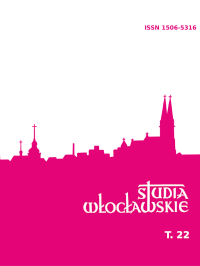Children’s preparation for the sacraments of Repentance and Eucharist the in Ukrainian Greek Catholic Church
DOI:
https://doi.org/10.52404/ttnwloc.stwl.22.13Keywords:
Ukrainian Greek-Catholic Church, Repentance and Holy Communion sacraments, UGCC Catechism Christ is our Passover, Solemn Holy Eucharist, programme Christ is the bread of life, Kyiv Christian tradition, Divine Liturgy, catechist, prayer, teaching and bringing up, the Holy ScriptureAbstract
According to the Particular Law (sui iuris) of Ukrainian Greek-Catholic church the can. 80 „exercising of the Christian initiation sacraments is fulfilled through the Holy Eucharist so in the summary of Baptism and Confirmation sacraments the baptized person has to accede to the Holy Eucharist according to the Liturgical Books requirements. Can. 92 of this Law in paragraph 3 states „that a 7-year-old child has reached the age of understanding, and he should be encouraged to the Repentance sacrament”. It is the bases of the programme. The children’s preparation programme for the first confession and the solemn Holy Eucharist in Ukrainian Greek-Catholic Church is entitled Christ is the bread of life and is confirmed at the session of the diocesan catechetical commissions UGCC leaders and agreed with the UGCC Catechism Christ is our Passover. According to the programme the auxiliary methodological set has been prepared which contains the instruction for the catechist and the study book for children. The programme consists of three parts: God has created me and He loves me, God has given me the live and The Holy Sacrament of Repentance is the demonstration of God’s love to me. It corresponds to the catechism’s structure – the faith of church, the prayer of church and the life of church. The aim of the programme is to teach students Christian articles of faith, to deepen the students’ faith in God as a loving father, to bring them into the liturgical church life, to teach them how to pray as well as to differentiate the goodness and the evil and choose the goodness. The indicators of the students’ amount of the knowledge achievements are the level of the knowledge and the way of behaviour, which he implies in the relationships with the people, surrounding him.
Downloads
References
Sobór Watykański II, Dekret o katolickich Kościołach wschodnich Orientalium Ecclesiarum, 1964.
Pius X, Dekret Quam singulari, AAS, 2(1910), s. 577–583.
Kodeks kanonów Kościołów Wschodnich, Lublin 2002.
Канони партикулярного права УГКЦ, cпецвипуск „Благовісника” Верховного Архиєпископа Києво-Галицького Української Греко-Католицької Церкви 2015 р. [Kanony prawa partykularnego UKGK].
Постанови Синоду Єпископів УГКЦ 2015, http://news.ugcc.ua/documents/postanovi_sinodu_yepiskop%D1%96v_ugkts_2015_74740.html [14.06.2019].
Katechizm UKGK Chrystus nasza Pascha, Lwów 2011.
Instrukcja w sprawie stosowania przepisów liturgicznych KKKW, Lwów 1996.
Instrukcja o przystąpieniu do Eucharystii niemowląt i dzieci w UKGK, Lwów 2015.
Chrystus jest Chlebem Życia. Instrukcja dla katechety wg programu przygotowania do Pierwszej spowiedzi oraz Komunii Świętej, red. A. Kozibroda, I. Rasiak, Lwów 2012.
Chrystus jest Chlebem Życia. Podręcznik dla dzieci wg programu przygotowania do Pierwszej spowiedzi oraz Komunii Świętej, red. A. Kozibroda, I. Rasiak, Lwów 2017.
Meyendorff J., Teologia bizantyjska. Historia i doktryna, Warszawa 1984.
Nitkiewicz K., Katolickie Kościoły wschodnie: kompendium prawa, Sandomierz, 2014.
Palamas G., Homilia 60, Athinai 1861.
Ware K., Prawosławne rozumienie pokajania, Białystok 1994.
Zabytki dawnego ruskiego prawa kanonicznego. Część pierwsza (zabytki XI–XV w.), Sankt Petersburg 1908.
Zasada katechetyczna UKGK, Lwów 1999.





